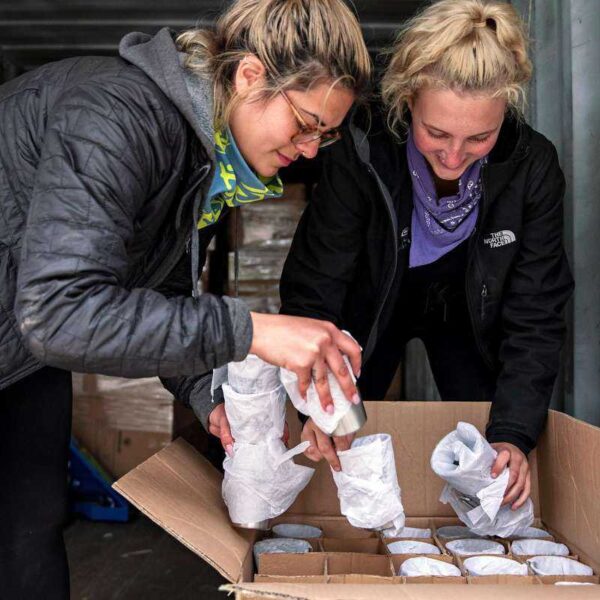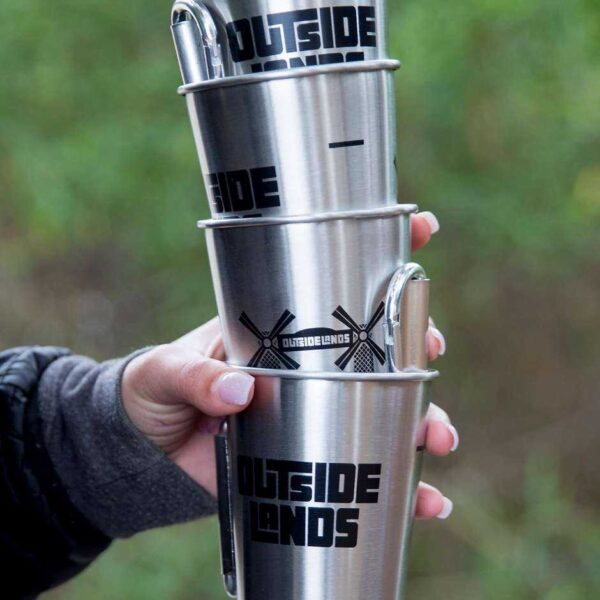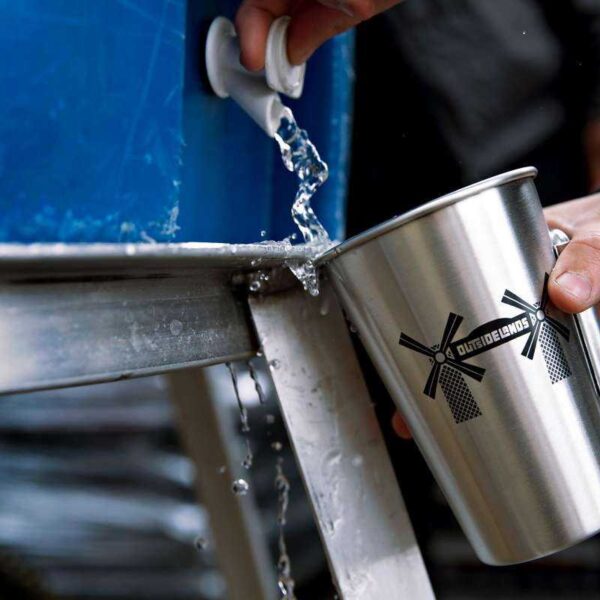So many of us have done it: bought a drink in a plastic cup or bottle at an event, drained it and gotten another cup or bottle.
San Francisco wants this habit to end.
The city is prodding people toward more reusable food- and drink-ware, as part of an effort to slash waste and green the economy. This weekend’s Nihonmachi Street Fair, held annually in Japantown, is selling reusable pint cups for the first time in its 46-year history. In two weeks, San Francisco International Airport will outlaw the sale of plastic bottles of plain water.
“I think it’s amazing,” said Jaime Cooke, 40, a traveler from London passing through SFO’s International Terminal on Thursday. She bought a bottle of Aquafina only because she had left her bottle of water at a hotel. “The environment is suffering due to plastic consumption, so I think it makes perfect sense.”
For businesses, the shift could mean paying more.
“It’s pretty costly,” said Pat Da Silva-Fong, chief financial officer of the Nihonmachi Street Fair, which is selling the stainless steel reusable cups though it still allows vendors to give out plastic cups and bottles. “I hope we sell out to cover” the cost.
Businesses must also strictly adhere to health regulations.
At Outside Lands, the Golden Gate Park music extravaganza that starts Friday, the catering company’s staff are only allowed to handle the lower half of refillable cups, which the festival will embrace more than ever this year for serving alcohol. Workers are supposed to wash their hands at 60-minute intervals and after opening each new case of refillable cups (which have to be stored at least 6 inches off the ground, as do cases of wine or other booze). When pouring any beer or wine, they aren’t allowed to let the neck of the bottle or tap touch the rim of the refillable cup; if it does, the tap has to be cleaned with a sanitized wipe.
The cups cost festivalgoers $6, but the idea is that people will keep refilling them with beer throughout the weekend.

Cassey Ramirez (left) and Sydney Kerns work to unbox a shipment of reusable cups for Outside Lands Music Festival guests during set-up for the event. Jessica Christian / The Chronicle

Cassey Ramirez unboxes a shipment of reusable cups for Outside Lands Music Festival guests. Each cup costs $6.

Sydney Kerns pours water into a reusable cups created for Outside Lands Music Festival guests during set up for the Outside Lands Music Festival at the Golden Gate Park Polo Field in San Francisco, Calif.
At Napa Valley’s BottleRock music and brew festival, which also featured reusable drinkware when it took place in May, every bar had to have a hand-washing station. Staff weren’t allowed to handle the cup while refilling at all, according to BottleRock partner Jason Scoggins. Guests would bring reusable cups back to the bar and set the cup on the countertop, so the bartender could pour more beer or wine in.
Festivals’ move toward reusable wares has been prompted in part by a new California law encouraging a clampdown on plastic waste from disposables. Signed by Gov. Gavin Newsom last month, AB619 rids California of a restrictive provision that made it especially difficult for temporary food facilities (which includes festivals, concerts, food trucks and fairs) to provide customers with reusable containers or multiuse utensils. Previously, reusables had to be brought to an “approved facility” to be cleaned before reuse by another person. Now, workers can sanitize them on site for reuse.
Other rules are kicking in, too. In San Francisco, organizers of events with more than 100 people that need a permit from the city must make reusable beverage cups available to at least 10% of attendees. SFO has had a similar requirement in place since March, and it says the remaining 90% of cups must be either certified compostable or made from natural fibers like paper, bamboo or wood.
Kyle Chan, an environmental health inspector for San Francisco’s Public Health Department, said that it’s important that reusable wares are properly washed and sanitized to avoid bacterial growth. Bartenders and waiters shouldn’t touch the top of the container where the pour spout is so as to avoid cross-contamination. Chan said consumers shouldn’t be too worried, though: The practices they require of temporary events are “not really any different or less safe than what (the department) would usually require” of restaurants, which routinely handle washable cups, plates and utensils.
In Berkeley, where the city will slap a 25-cent fee on disposable cups next year, a reusable cup borrowing program is in the works for people who want their coffee to go. The experimental effort, led by curbside recycler Ecology Center and steel cup manufacturer Vessel, will run from mid-September until spring 2020, with 10 participating businesses in and around the UC Berkeley campus. Customers scan a QR code on the Vessel cup when they order a drink and can rent it for up to five days before returning it at a drop-off kiosk.
“Because we’ve gotten so attached to the convenience of takeout, we have to provide convenient solutions,” said Ecology Center Executive Director Martin Bourque. He wants borrowing a cup to be as easy as hailing an Uber or getting a book from the library — and dreams that eventually people will be able to pick up their drink in a cup in Berkeley and drop it off in San Francisco when they get to work.
How consumers respond will determine the program’s success. Paul Liotsakis, who founded a similar program called Go Box four years ago for food containers in the Bay Area, has had difficulties getting businesses on board. Adoption has been slow because it requires a behavior change.
“It’s a great idea, but it didn’t seem to take off with our customers,” said Christine Savage-Mindel, who owns Neighbor Bakehouse in Dogpatch with her husband. It’s been years since she has seen someone come in with a Go Box.
There’s also the question of how environmentally friendly reusable dishware actually is, compared with disposables. For example, washing cups and utensils requires a lot of water, which is sometimes scarce in California.
However, San Francisco Department of the Environment spokesman Charles Sheehan said reusables are “always definitely less impactful to the environment than single-use items that you throw away after one use. Yes, you’re using a bit of energy and water to clean the reusable,” but single-use items require a lot of energy and water for mining, manufacturing and transportation — and then once they’re used and disposed of, the process starts all over again.
If change is to take place, responsibility lies partly with everyday consumers to think about their own role in the culture of disposables, said John Borg, founder of reusable wares manufacturer Steelys Drinkware in Dogpatch. But businesses and manufacturers can also help ease the switch. For example, the pint-size reusable cups at Outside Lands this year will have a carabiner clip attached to make them more convenient for people to carry around the festival grounds.
Borg noted that people have adjusted to plastic bag bans over time, by bringing their own.
“Maybe this can prove to the larger community that this can be done on a huge scale — we’re seeing that it can work,” he said.
Chronicle staff writer Eduardo Medina contributed to this report.
Elena Shao is a San Francisco Chronicle staff writer. Email: elena.shao@sfchronicle.com Twitter: elenalingshao